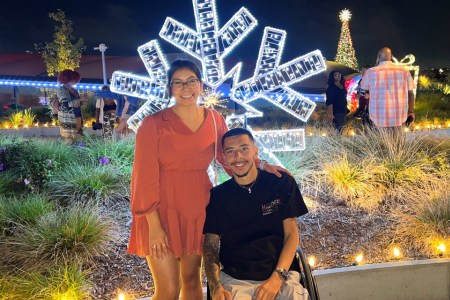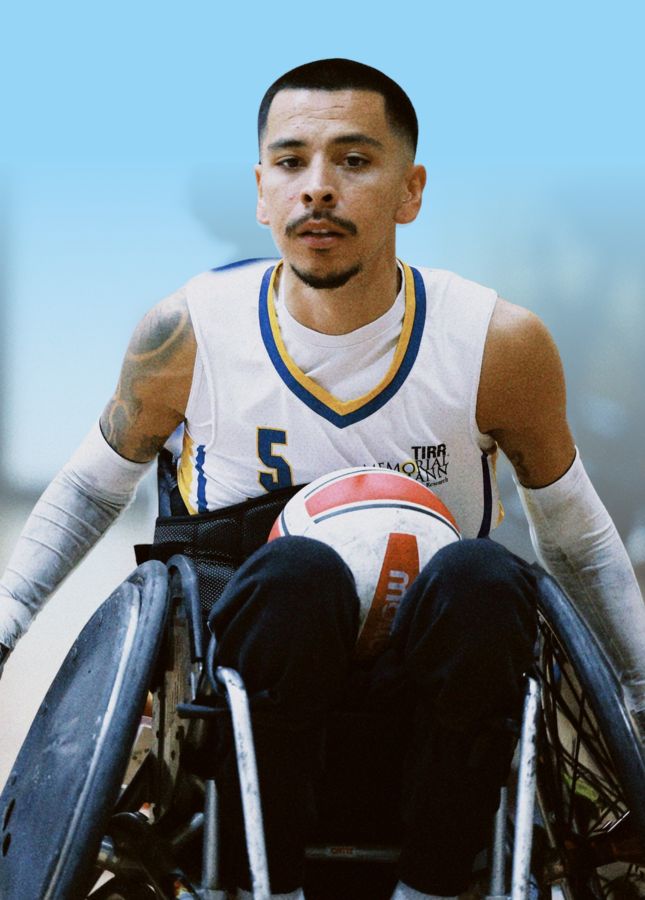
At 180 Medical, we believe in the power of peer support and understand how much it can help to talk to someone who truly gets it, whether you’re dealing with a new diagnosis that impacts your bladder or recovering after a spinal cord injury.
Our company’s founder, Todd Brown, experienced what it was like firsthand to search for support after a motocross accident left him with a spinal cord injury. He started 180 Medical as a way to make life a little easier for others facing similar challenges by offering high-quality catheter supplies with empathetic, knowledgeable service.
Today, that same spirit of compassion that inspired Todd continues through our Peer Support Team. Real people like Daniel who’ve been where you are are here to listen and encourage you through what you’re going through. Daniel is open about his journey and how difficult things were for him at first, and now, 10 years later after his SCI, he’s married, working at 180 Medical, and he just bought his first house. We’re excited to share his story so you can get to know Daniel.

Rebuilding a New Life with Support After a Spinal Cord Injury
Daniel, now 29 years old, lived a full and active childhood. While he was still in high school as an 18-year-old, that’s when everything changed.
One day, he spotted a bad car accident while driving, and his first instinct was to pull over to the side of the road and help the people involved.
“But as I went to get back into my car, I was rear-ended from behind. From that moment, my whole life changed in the blink of an eye,” he says. Instantly, his neck was broken, and he was transported to a hospital, where he was told he wouldn’t walk again.
“Immediately after my injury, I really thought my life was over,” Daniel admits. “I didn’t think I had a purpose or any reason to be alive. But having the support of my family and friends, especially my parents who showed up every day, helped me get through it in the beginning.”
The rehab process was long and challenging. Daniel had to get used to pushing a manual wheelchair, learning how to use catheters on his own, transferring in and out of bed, and getting dressed independently. Thankfully, his parents played a big role in being there. Several of his friends really showed up for him too, even going with him to the gym and helping him work out every day.
Through it all, what Daniel learned was that “having a good support system helps a lot because you know you’re not alone. You’re going to need help in the beginning, and that’s just normal. But to know you have somebody in your corner is a blessing.”

Paying It Forward: Offering Peer Support to Others
Over the ten years since his spinal cord injury, Daniel has been trying to pay it forward by providing encouragement to others he meets with spinal cord injuries. Now, as a Peer Support Team member at 180 Medical, he gets to also help people who are newly adjusting to using catheters.
Today, he gets to tell others the things he wishes someone had told him when he was first injured and learning to use catheters: that life isn’t over. He says, “You can still go to work, have a family, play sports, and do plenty of things that you could do before.”
Daniel loves getting to talk to people who are going through a hard time and encourage them through it. Recently, he got to speak with the mother of a newly injured spinal cord injury patient when she called in to order catheter supplies from 180 Medical.
“As we started talking, I knew exactly how she felt, because I was once in the same situation as her son. I just tried to give her encouragement and let her know that he’s still young. He’s got his whole life ahead of him,” Daniel says. “Even though it’s going to take some adjusting and it may not always be easy at first, don’t ever, ever give up.”
Finding Strength in Adaptive Sports
Aside from the love and support of his family, wife, and friends, one of Daniel’s biggest sources of healing and finding a sense of community has been through adaptive sports. Daniel plays low-point wheelchair rugby for the TIRR Texans, a Houston-based team affiliated with the TIRR Memorial Hermann Hospital’s Adapted Sports program. As of 2025, the TIRR Texans are two-time national champions!
“The most valuable resource that I would suggest to people looking to get active after their SCI is adaptive sports. It just opens you up to a whole new world. You’ll meet some amazing people, and you can learn so many things from others who are living with spinal cord injuries and other conditions for years,” he shares.
Not sure which adaptive sport to get into? You’re not limited. There are options from at-home adaptive wheelchair yoga to handcycle racing and more. Steve, our Patient Advocate and TIRR Texans coach, has written a full article about the benefits of adaptive sports and the many options out there.
And if adaptive sports aren’t your thing, there are plenty of other avenues for living a full, happy life after your spinal cord injury.

Want to Connect with the 180 Medical Peer Support Program?
Daniel knows firsthand how important it is to have someone to talk to after a life-changing diagnosis. He shares, “Sometimes, people just need someone who can relate and understand. It can be hard to speak with someone who doesn’t really know what you’re going through or what you’ve been through.”
If you or someone you know could benefit from support after a spinal cord injury, we’re here to help. Reach out today and ask your 180 Medical specialist about connecting with our Peer Support Team.
Whether you need encouragement, help adjusting to using catheters, product help, or just want to talk to someone who gets it, we’re here for you.
And no matter what you’re going through, Daniel wants you know this: “Never give up. Yes, a spinal cord injury changes life. But it doesn’t end it. Keep going. Keep fighting. You’re capable of so much more than you realize.”